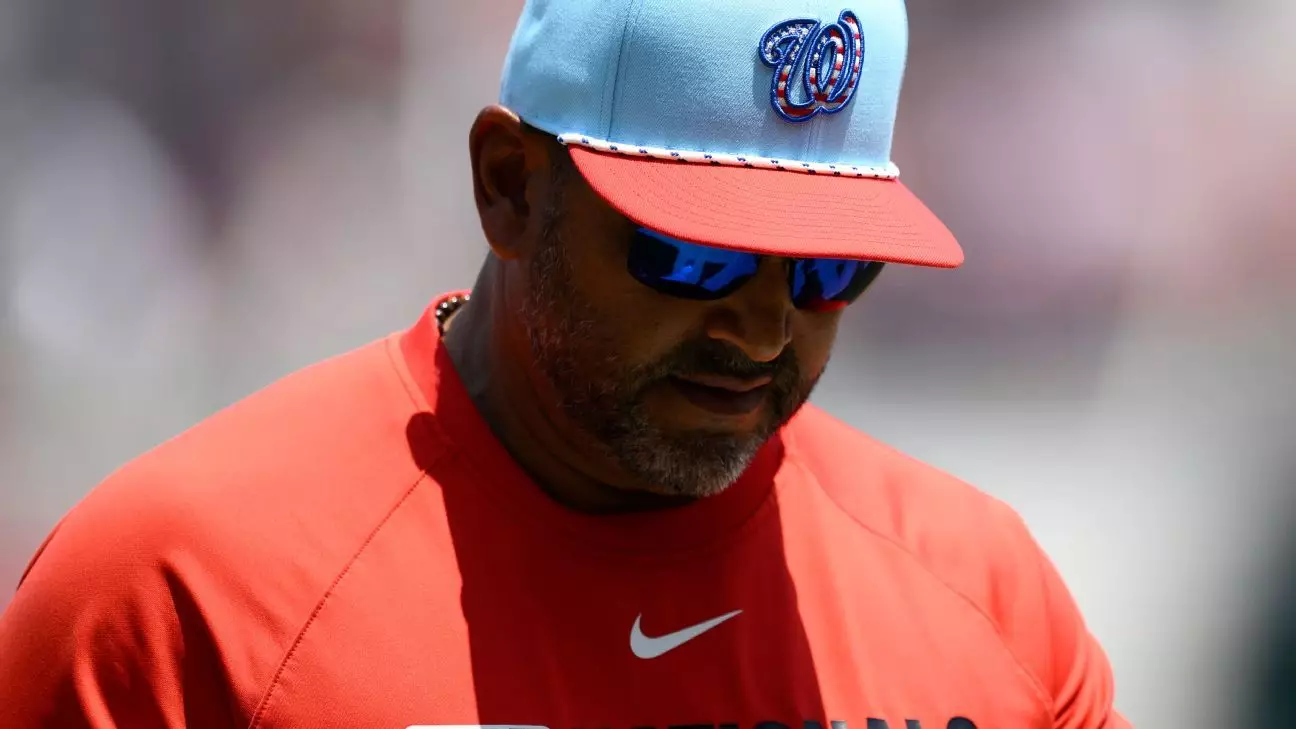The Washington Nationals’ recent upheaval underscores a painful truth about sports organizations: leadership matters profoundly, often more than talent alone. The decision to dismiss president of baseball operations Mike Rizzo and manager Davey Martinez is not merely about poor results on paper but reflects deeper deficiencies in strategic vision, accountability, and organizational culture. Washington’s struggles are emblematic of a franchise that, despite past glories, appears trapped in a cycle of stagnation and misguided optimism.
Rizzo’s tenure, marked by a historic World Series victory, initially promised a new era of success. Yet, the subsequent years reveal a pattern of missteps—failing to build on that victory and neglecting the long-term rebuilding process. Instead of embracing a genuine rebuild aligned with the realities of modern baseball, the team lingered in mediocrity, clinging to short-term solutions that ultimately backfired. The franchise’s failure to invest adequately in free agency and develop a sustainable core exposes a leadership incoherence that threatens to erode trust among fans and stakeholders alike.
As for Martinez, leading up to this season, he appeared increasingly out of depth as the team’s on-field performance deteriorated—an indicator that perhaps a change in leadership was overdue. Nonetheless, the removal of both figures signals a broader recognition that neither individual was able to navigate the franchise out of its malaise. Yet, this decision also raises doubts: does the front office truly grasp what it takes to foster long-term success, or are these moves short-lived attempts to mask deeper structural issues?
The Illusion of a Quick Fix in a Long-Term Rebuild
Washington’s slow-moving rebuild and its evident lack of strategic direction highlight a common pitfall: the tendency to underestimate the complexities of constructing a winning team. The franchise’s young roster, featuring promising talents like James Wood and MacKenzie Gore, offers hope. However, these prospects remain unproven, and the team’s recent record illustrates how fragile such hope can be. The Nationals’ inability to supplement their core through smart offseason moves—choosing instead to make minor signings—demonstrates a shortsighted approach that prioritizes immediate financial savings over sustainable development.
This approach reflects a broader problem within the franchise that extends beyond individual leaders. There’s a persistent undercurrent of resistance to bold, decisive action, whether it’s investing heavily in free agents or aggressively reshaping the roster through trades or strategic drafting. The failure to capitalize during the winter signifies a passive stance—one that places hope over planning. As a result, the team remains caught in a cycle of underachievement, sinking deeper into irrelevance.
The Need for Responsible Leadership in Rebuilding Trust
The decision to instate Mike DeBartolo as interim general manager indicates an awareness that a different approach is needed—yet, this alone is insufficient. True reform requires a fundamental reevaluation of the organization’s values, priorities, and willingness to embrace transparency and accountability. Fans and analysts alike are justified in demanding leaders who understand that sustainable success is rooted in patience, strategic foresight, and a commitment to nurturing talent over fleeting wins.
Moreover, this moment presents an opportunity for the Nationals to pivot towards a progressive, inclusive management philosophy—one that recognizes the importance of community engagement, player development, and fiscal responsibility. In a league increasingly driven by analytics and long-term planning, Washington risks falling further behind if it remains passive and reactive. The franchise’s future hinges on whether the new leadership team will depart from the misguided pursuit of quick fixes and instead foster a culture of deliberate growth.
This turbulent period isn’t just about baseball—it’s a reflection of organizational integrity. The Nationals must confront their deficiencies head-on, challenge entrenched complacency, and prioritize meaningful change over superficial gestures. Only through such a transformation can they hope to repair the trust they’ve lost and eventually craft a team capable of restoring their place among baseball’s elite.

Leave a Reply